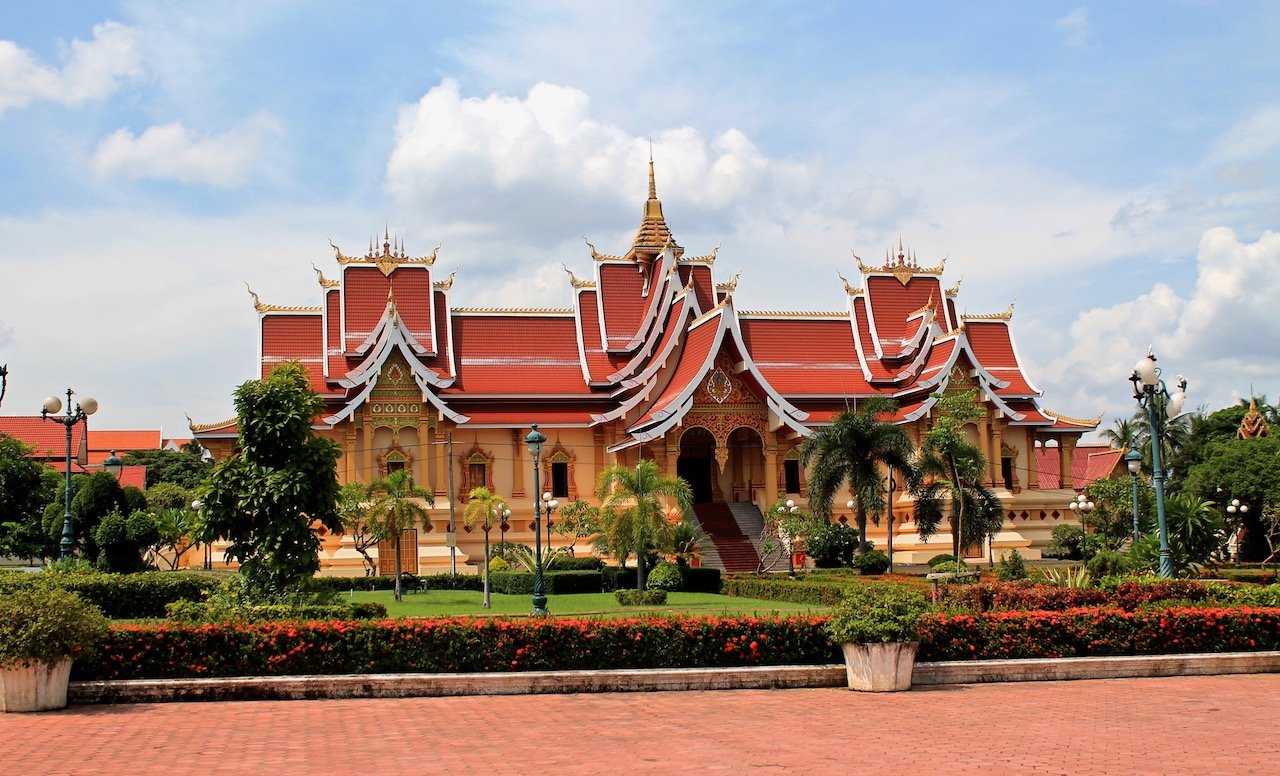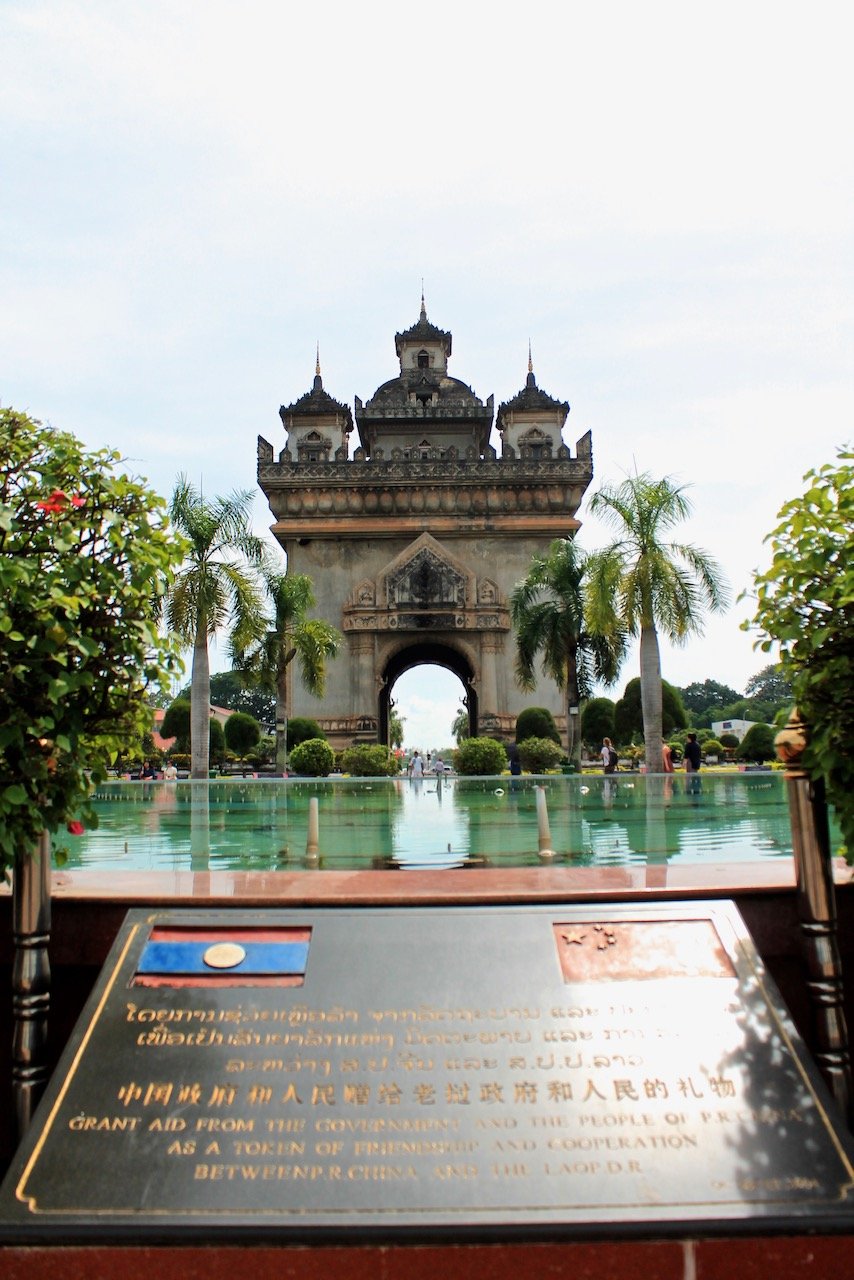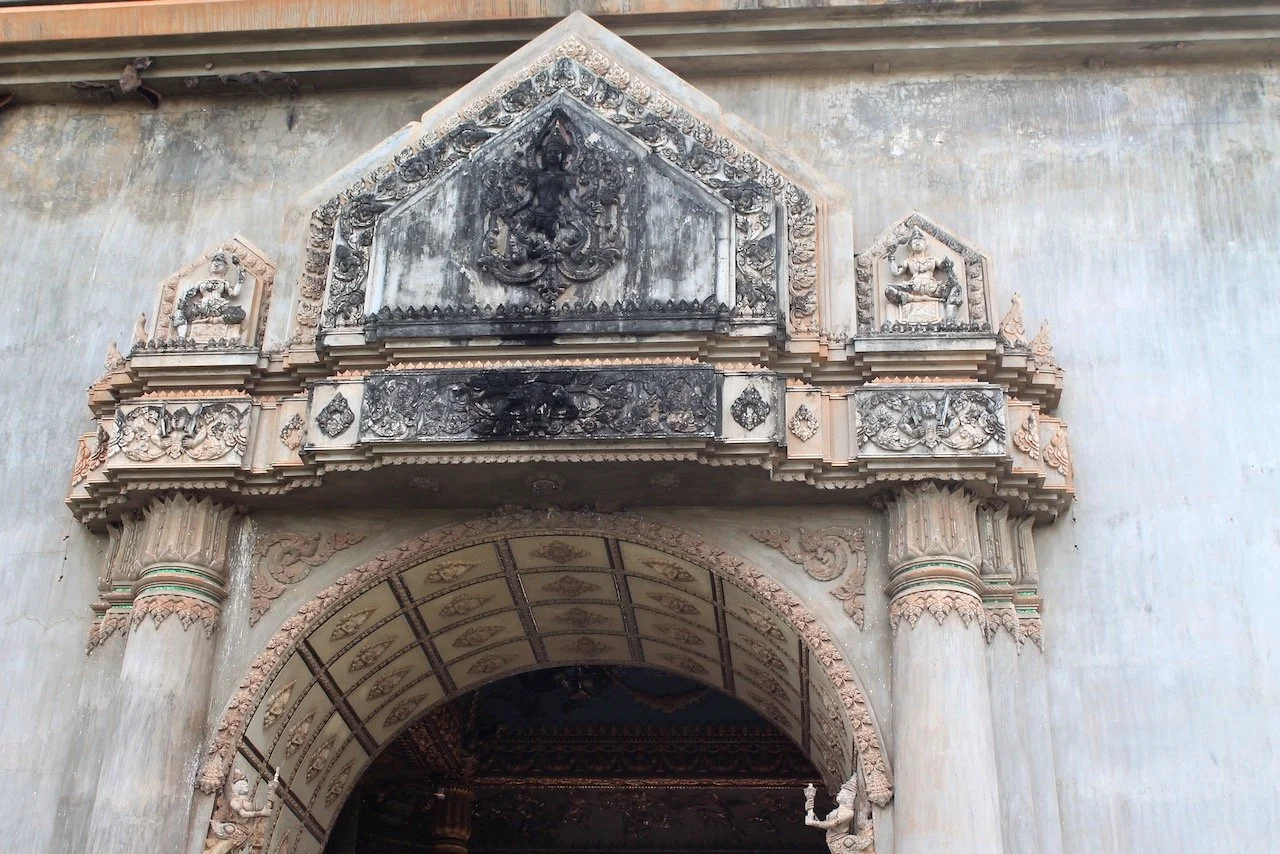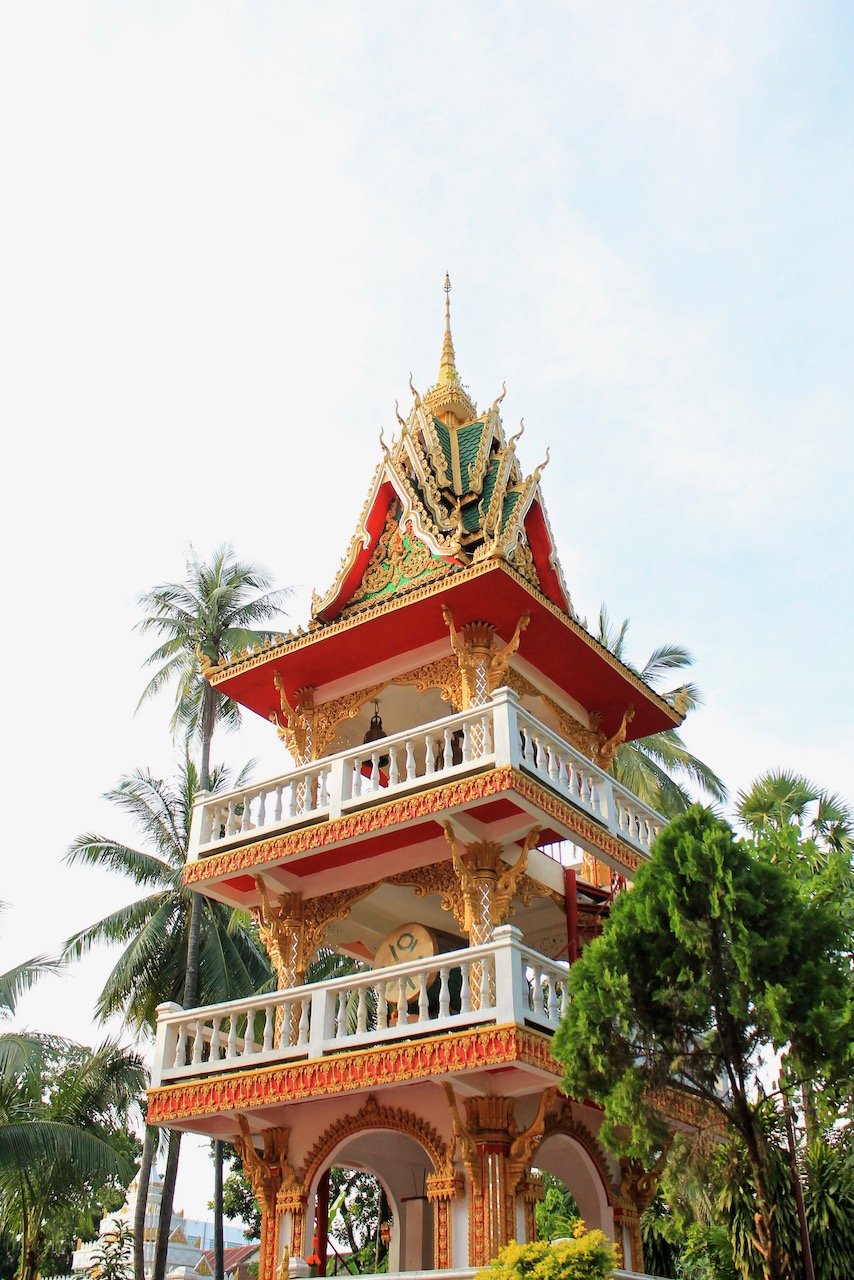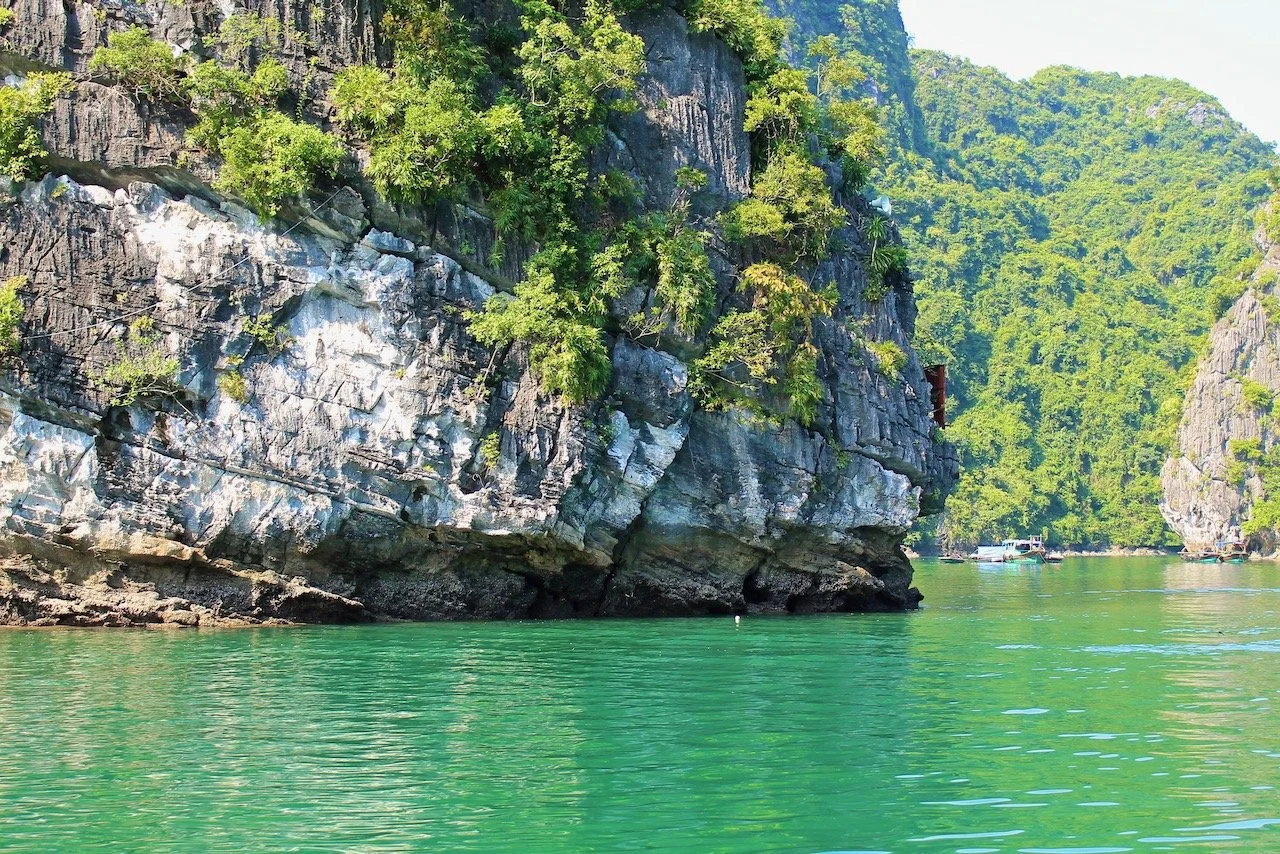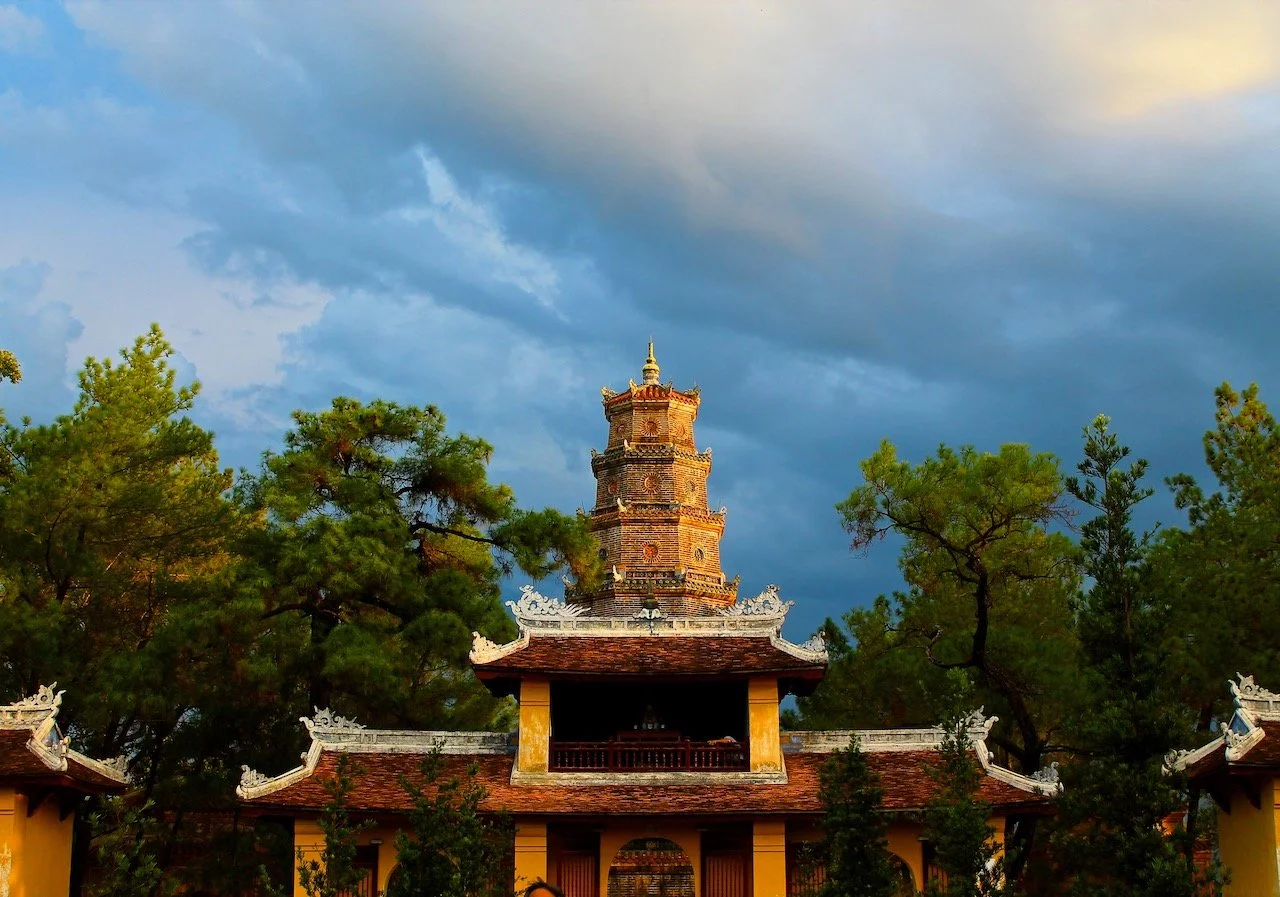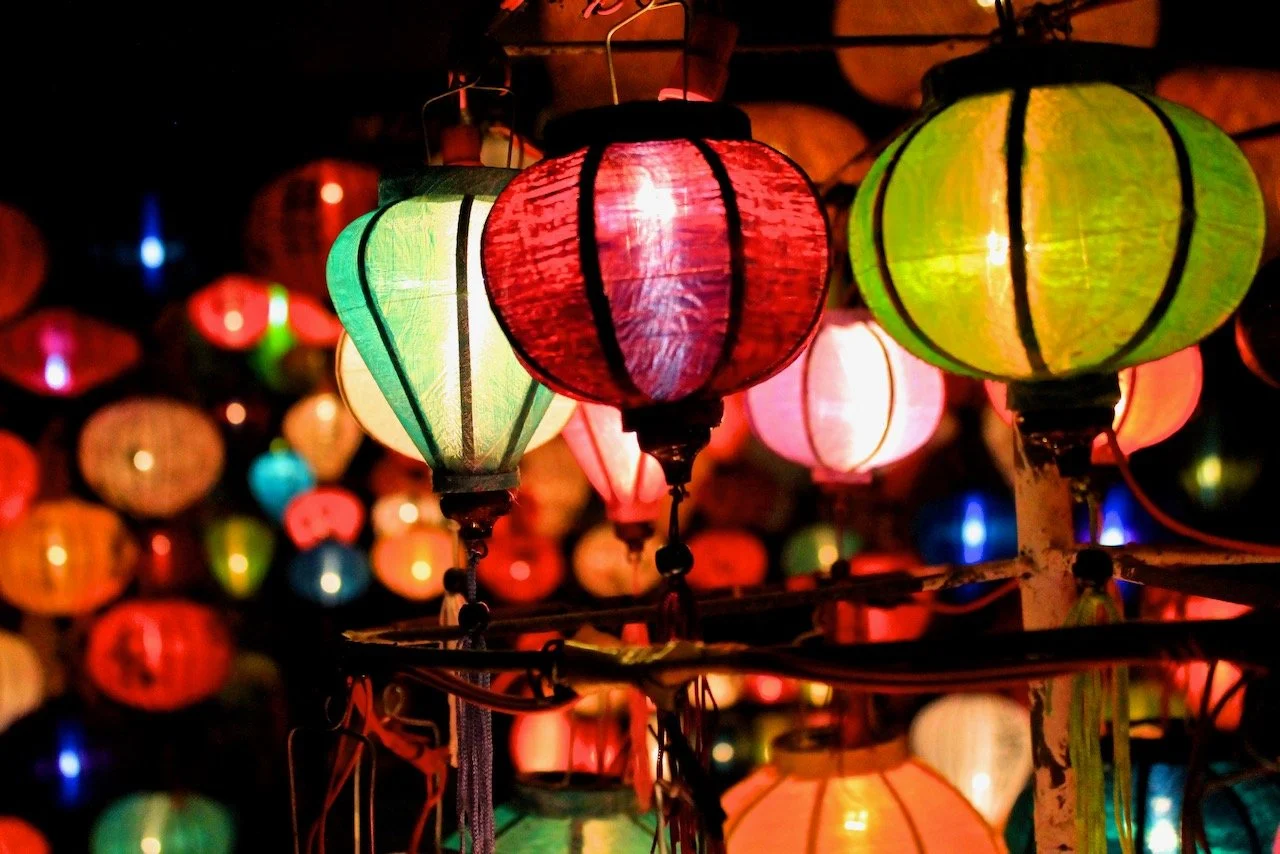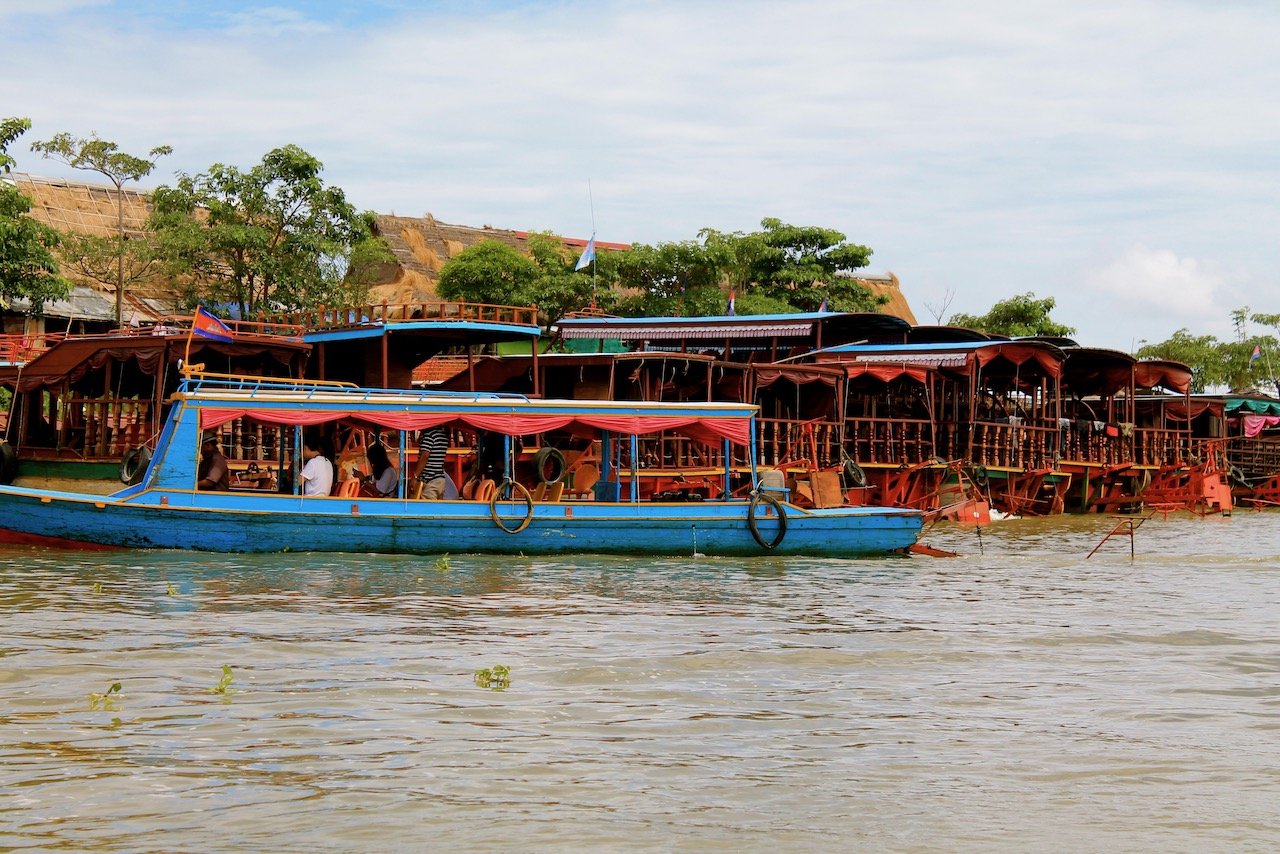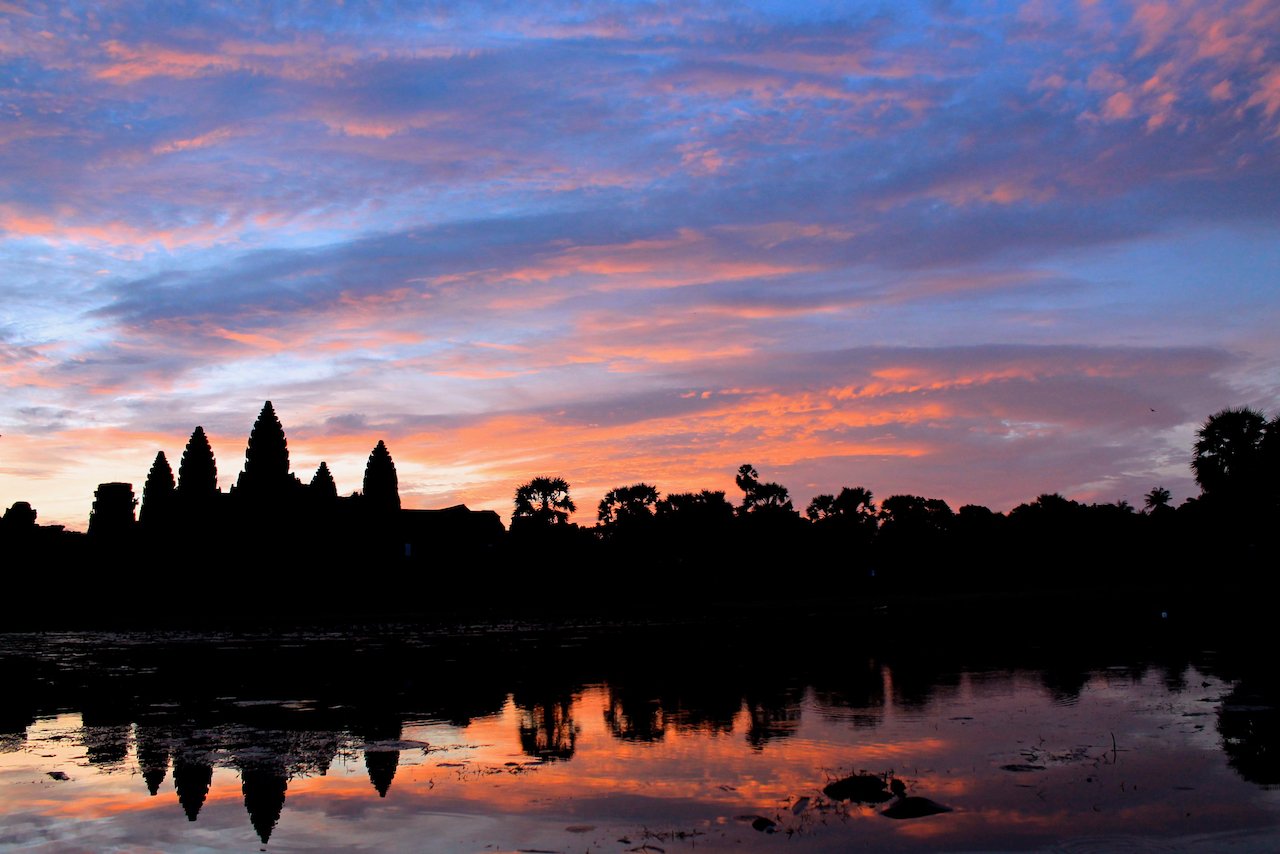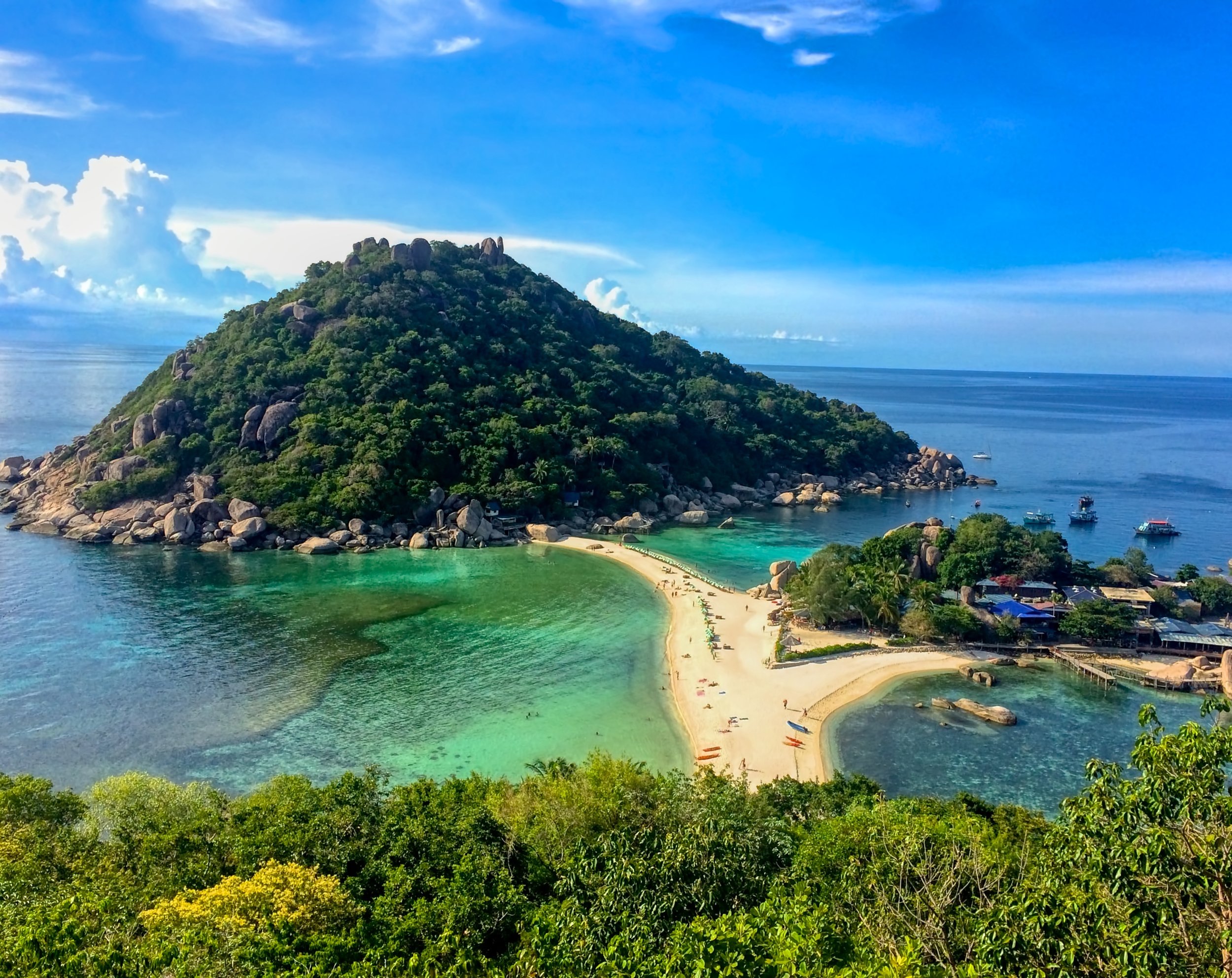Exploring Vientiane, the Capital City of Laos
(Some links in this post are affiliate links. If you click through and take action, I'll be compensated.) If you are also interested in any PRINTS from any of my posts, be sure to check out my store where you can buy prints as posters, in metal/wooden frames or on canvas.
Vientiane is the capital city of the Southeast Asian nation of Laos. It sits right on the bank of the Mekong River on the border with Thailand. Due to occupation by the French in the 19th and 20th centuries, there is considerable French influence that can be found in Vientiane. The name ‘Vientiane’ rougly translates to 'walled city of sandalwood'.
Laos is typically not in the conversation when people discuss Southeast Asia, often being overshadowed by countries like Thailand and Vietnam. I think this is definitely a mistake, and mainly because there isn’t much that people know about Laos in general.
Laos has a storied history, some of it tragic, but it has been an increasingly popular tourist destination in recent years due to its amazing nature as well as amazingly underrated Laotian food. My time in Laos was partially marred by food poisoning I received while in Thailand. All the more reason for me to return someday! I nonetheless was able to enjoy parts of the country, including the capital of Vientiane.
How to get to Vientiane
The most direct way to reach Vientiane is by plane. Book your plane tickets to arrive into Wattay International Airport (Airport Code: VNT), which sits just seven kilometers west from the city center of the capital.
Another cool way to get to Vientiane from neighboring Thailand (if you are in the vicinity of Northern Thailand, think Chiang Mai and Chiang Rai) is to take a slow boat from the Thai/Lao border at Houayxay to the city of Luang Prabang. This can usually be booked through your accommodation in Northern Thailand. Then from Luang Prabang, you can take a two hour train for $30 or fly, which takes 1.5 hrs and costs a bit more.
Here are some places worth visiting in Vientiane:
Patuxai
This monument literally translates toVictory Gate or Gate of Triumph and was built between 1957 and 1968. The Patuxai is a war monument that was dedicated to those who fought for independence from France, as Laos was a former french colony. The archway of the monument very much resembles that of the Arc De Triomphe in Paris, however has elements of Laotian culture in the form of mythological creatures on the facade.
There are gardens that accompany the archway monument as well, best seen from the 2nd level of the monument. Interestingly enough, the funds for this monument came from the US and were intended to build a new airport. This gave the monument the moniker of the ‘Vertical Runway’.
If you like some of my photos that you have come across, just know that I have many prints showcasing a variety of landscapes available for purchase below! (Sold as Posters, Canvas, or in Metal-Frames and Wooden-Frames).
Pha That Luang
Pha That Luang translates to ‘Great Stupa’ and is a gold covered Buddhist stupa in the center of the city. It is thought to have been built in the 3rd century AD, while undergoing many renovations over time. It is considered the most important national monument in Laos.
Haw Phra Kaew
Haw Phra Kaew was first build in 1565 to house the Emerald Buddha, having been rebuilt many times over the years. This temple also functions as a museum of religious art as well as a shop. The Emerald Buddha that the temple houses is an image of a meditating Buddha, made of jasper and clothed in gold.
Lao National Museum
This museum is located in Vientiane and highlights the struggle of the Lao people in gaining their independence from France. The museum building itself was repurposed from the old French governer’s residence, ironically enough. The United States gave funds to Laos to further develop the building into their National Museum.
Wat Ong Teu Mahawihan (Temple of the Heavy Buddha)
The Wat Ong Teu Mahawihan is a Buddhist monastery in Vientiane, initially constructed in the 16th century (the Golden Age of Buddhism in Laos). Unfortunately, foreign invasions have let to the demolition of the monastery, leading it to be rebuilt many times in the 19th and 20th centuries. It houses the largest Buddha in Vientiane in the form of the bronze Phra Ong Teu Buddha image.
Wat Si Saket
Wat Si Saket is another Buddhist temple in the capital city. It was built in 1818 by King Anouvong in the contemporary style for Buddhist architecture at the time. It was used as a compound and headquarters of the Siam army in 1827. The temple was restored by the French in the 1920s and is considered the oldest temple still standing in Vientiane. Fun Fact: the Wat features a wall containing more than 2000 Buddha images.


COPE Visitor Center
One of the more somber places to visit is the COPE visitor center. Unfortunately, due to the proximity of Laos to Vietnam, the country was used much by the Viet Cong and US forces during the Vietnam war for troop transports. This made the country susceptible to bombing, mostly from the US side. Many of these bombs take the form of bomblets, which are placed into cluster munitions. Not all of these bombs explode on contact and are still live ordinance buried in the ground, even to this day.
COPE stands for Cooperative Orthotic & Prosthetic Enterprise and is the main source of artificial limbs, walking aids and wheelchairs in Laos for those who have been maimed by these unexploded munitions during the Vietnam war. Its visitor center highlights their mission and the tools at their disposal for those suffering from these bombs.





